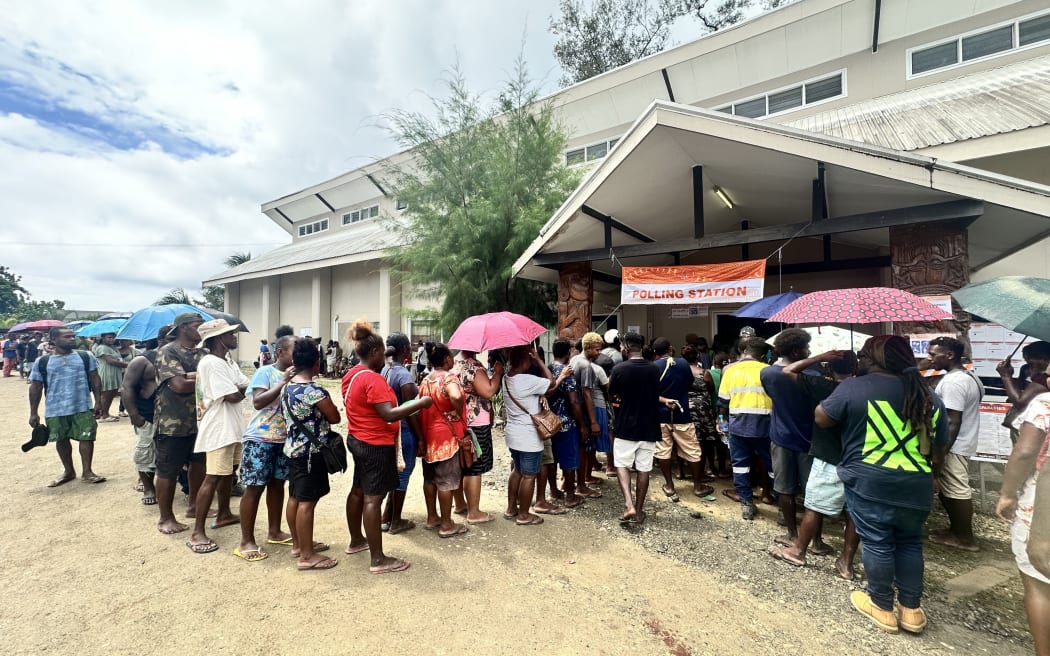By Koroi Hawkins, RNZ Pacific editor in Honiara
With only four more seats in the 50-member Parliament yet to be officially declared, there is no outright winner in the Solomon Islands elections.
As of Monday, the two largest blocs in the winner’s circle, independents and the incumbent Prime Minister Manasseh Sogavare’s Our Party, were tied with 12 MPs each.
It is a significant result, given at the last election in 2019 Our Party did not even exist going into the polls, but was created by Sogavare with the sole intention of pulling together the large number of independent MPs that emerged from the election that year.
RNZ Pacific investigations have identified the location of some of the lobbying camps in the capital.
The Honiara Hotel camp in Chinatown was set up by former prime minister Gordon Darcy Lilo’s Solomon Islands Party for Rural Advancement a week before polling even began.
Sogavare’s Our Party, the largest grouping in the last Parliament, has a well-documented affiliation to the Cowboy’s Grill in the eastern side of town.

The former opposition leader Mathew Wale, who gambled in setting up the country’s first ever publicly announced pre-election coalition “CARE”, is understood to be holed up at the Heritage Park Hotel in the CBD.
Prediction impossible
At this stage, it is next to impossible to predict the final form of the coalition government because MPs are not legally bound to political parties and can move freely between the different camps.
In Solomon Islands, there is a stark disparity in both pay and benefits between government, opposition and independent MPs, which ups the stakes significantly and has been fingered by political experts as one of the root causes of political instability in the country.
Meanwhile, losing candidates around the country are already preparing election petitions ahead of a 30-day window for submissions which opens once all the election results are in.
In 2019, more than half of the MPs had election petitions filed against them but the majority where dismissed due to a lack of sufficient evidence.
This article is republished under a community partnership agreement with RNZ.
Article by AsiaPacificReport.nz





